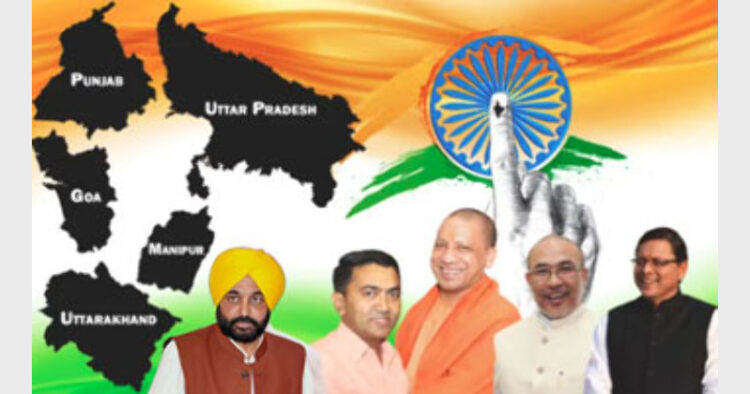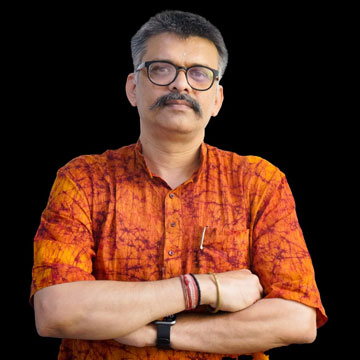The spectacular victory of BJP in the Assembly elections in four out of five States – Uttar Pradesh, Uttarakhand, Goa, and Manipur–is a resounding endorsement of its kind of politics characterised by its commitment to Hindutva, uncompromising stance on issues of national security, development and meticulous implementation of welfare schemes. Belying predictions of pollsters and cynics, BJP, under the leadership of Yogi Adityanath, swept UP, making it the first-ever political party to retain power for the second consecutive term in the State. In Uttarakhand, too, BJP achieved somewhat a similar feat. Despite many odds, BJP managed to romp home in Goa, while the saffron party confirmed its return to power in Manipur by bagging 32 seats in the 60-member Assembly. Although there is nothing to write home about BJP’s performance in Punjab, the party’s decision to slug it out alone at the hustings is a wise move pregnant with possibilities for the future.
The outcome of the Assembly elections, Punjab included, will have a major impact on national politics. It indeed marks a departure from the traditional politics mired in corruption, nepotism, and appeasement. One of the major takeaways of the election is the decimation of parties that refused to see the tectonic shift taking place in Indian politics.
The election results also reflect the enduring appeal of Prime Minister Narendra Modi who has brought a lot of energy and purpose into politics. Taking a cue from PM Modi, the ‘double engine’ Government of UP altered the way the administration used to function in the State. Under Yogi, UP has seen strong economic and social growth, multi-faceted development initiatives, effective delivery of services and implementation of welfare schemes and improved law and order situation. His zero-tolerance on corruption and crime has earned him the epithet of ‘Bulldozer Baba’. By weaponising bulldozers, Yogi had unleashed a war on land sharks and corrupt politicians who had enriched themselves by grabbing public and private properties, thereby endearing himself to the common man. His crackdown on criminals had a telling effect on the law and order situation in the State, which even his staunchest rivals would admit.
The State Government’s COVID-19 management and its interventions in the farm sector are markers of efficient governance. When vested interests were trying to exploit farmers’ concerns about farm laws, he reached out to them to redress their grievances. By firming up the delivery system using technology to check pilferage, his prashasan (administration) had managed to streamline and deliver rashan (ration) to millions of poor households who were reeling under the ill effects of the pandemic. Ration items worth about Rs 36,000 crore were delivered at the doorstep of the poor.
Women and youth have been the focus of a slew of welfare schemes unleashed by the ‘double engine’ Government. For instance, 42 lakh houses were built for the poor in the last five years, while 1.5 crore women benefited from the PM Ujwa-la scheme. Although the BJP Government at the Centre was flayed by orthodox elements and political rivals for outlawing regressive instant Triple Talaq, election results show that the move has many takers among Muslims, especially Muslim women.
By initiating the construction of the Ram Temple at Ayodhya and undertaking the redevelopment of Kashi Vishwanath corridor in Varanasi, BJP has reiterated its commitment to the core concerns of Hindus. Besides, initiatives to prevent the slaughter of cows have also been appreciated by Hindus.














Comments